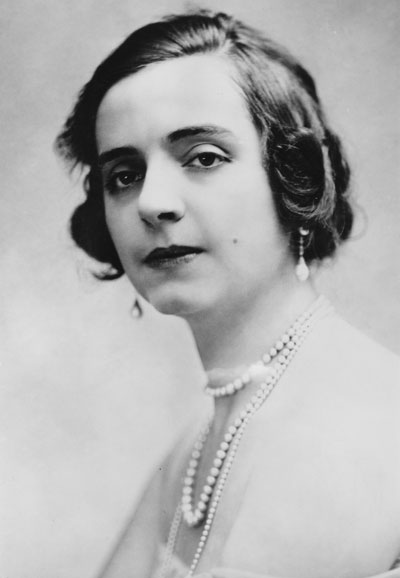In April 1917 Edward, Prince of Wales, at a luncheon at the Crillon Hotel in Paris, had the misfortune to meet the very sexy and utterly loathsome Marguerite Alibert. A successful demimondaine, Marguerite could be amusing company, sophisticated in manner and extremely chic. Expert in bed, she was also expert at manipulating men and parting them from very large sums of money; and as all her lovers soon discovered, when crossed she proved spoilt, vindictive and possessed of a terrifying temper. The Prince fell for her at once and began an affair which lasted just over a year.
Although he was nearly 23, Edward was young for his age and naïve, and during his infatuation with Marguerite he unwisely wrote her a number of dangerously indiscreet letters, containing, among much else, comments about the conduct of the war and some abusive criticism of his father. When eventually Edward tired of her, Marguerite apparently threatened to blackmail him, although in the event, and presumably through the intercession of the royal solicitors and Special Branch, nothing came of her threat.
This might well have been the end of the story had Marguerite not several years later married a rich Egyptian, her first marriage to a wealthy Frenchman having ended after less than a year. Once divorced she soon found another affluent backer, but that arrangement foundered when she lashed him across the face with a horsewhip during a furious argument over the menu at a fashionable restaurant in Versailles.
In order to recover her equilibrium Marguerite travelled to Cairo and it was here she met the multi-millionaire playboy, Ali Kamel Fahmy bey. Described as nervous and rather weak, Ali nevertheless was accustomed to having his way; he spent massively on cars and motor boats and at the gaming tables of Deauville, Monte Carlo and Biarritz. He also expected his women to do exactly as they were told.
Predictably, he and Marguerite were soon at each other’s throats, Ali misguidedly attempting to ‘train’ his wife, as he put it, which naturally infuriated Marguerite. She also very much disliked his method of making love to her ‘par la derrière’, as her sister described it once to a companion of Noël Coward’s. In July 1923 the Fahmys arrived in London and moved into the Savoy Hotel. Here after another violent row during a late supper, when Marguerite threatened to smash a wine bottle over Ali’s head, the couple retired to their suite and in the early hours of the morning Marguerite shot her husband.
Marguerite’s trial for murder at the Old Bailey takes up over a third of Andrew Rose’s detailed account of the case and the story behind it. Naturally there was some anxiety on the part of the Prince of Wales lest the existence of his embarrassing letters should come up in court when Marguerite was questioned about her past, but no mention was made of them nor of his friendship with the accused. For this reason, the author’s strenuous attempts to structure the book as ‘the first great love of Edward VIII’s life, the sensational consequences, and the Establishment cover up’ fall rather flat: the Prince had little part to play in any of it.
The story of Marguerite, however, is fascinating not only for what it reveals of this far from appealing personality but for the social history of the time and of that glittering and decadent world, both in Paris and Cairo. Andrew Rose was himself a judge, and his lengthy account of the trial is magnificent and easily the best part of the story. Here he comes into his own, whereas elsewhere the narrative flow is too frequently held up by unnecessarily detailed research, on the weather, popular music and the lengthy back-stories of minor characters. Nonetheless, Marguerite Alibert was well worth disinterring, and the movie should be terrific.






Comments